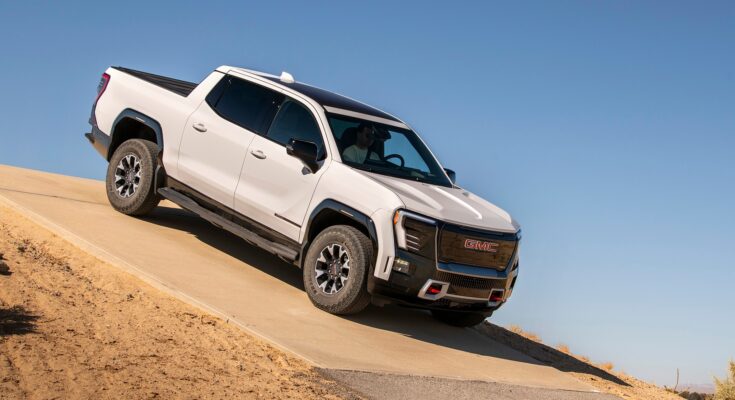Understanding Diminished Value in Alabama
Diminished value (DV) refers to the reduction in a vehicle’s market value after it has been involved in an accident and subsequently repaired. Even with flawless repairs using original manufacturer parts, a vehicle with an accident history is inherently worth less than an identical model with a clean history. Potential buyers are wary of previous damage, fearing hidden mechanical issues, compromised structural integrity, or future problems. This perceived loss is a real, quantifiable financial loss suffered by the vehicle owner. In Alabama, this concept is recognized, and car owners have the right to pursue compensation for this loss from the at-fault party’s insurance company.
The Three Types of Diminished Value Claims
Not all diminished value claims are identical. Understanding the categories is crucial for assessing your potential case.
- Inherent Diminished Value: This is the most common type of claim. It is the pure loss in market value simply because the vehicle has a repair history. It assumes the repairs were performed to the highest standard. This is the fundamental loss every car owner suffers after a collision and forms the basis for most insurance claims in Alabama.
- Repair-Related Diminished Value: This refers to additional value loss caused by substandard repair work. This includes issues like poor paint matching, visible repair lines, uneven panel gaps, or the use of aftermarket parts instead of Original Equipment Manufacturer (OEM) parts. It is essentially the loss in value on top of the inherent DV due to faulty craftsmanship.
- Immediate Diminished Value: This is the difference between the vehicle’s pre-accident value and its value in its damaged state, immediately after the crash but before any repairs are made. This is rarely pursued by individual consumers but can be a factor in certain commercial or litigation contexts.
Why Alabama Law Allows You to Seek Diminished Value
Alabama operates on a traditional “tort” system for auto insurance claims, also known as an “at-fault” state. This means the driver who causes the accident is financially responsible for the losses they inflict on others. This liability extends beyond just repair costs and rental car fees; it includes making the injured party “whole” again. Since a car is a depreciating asset and an accident accelerates that depreciation significantly, compensation for diminished value is a necessary component of making the owner whole. The Alabama Supreme Court has consistently upheld that a plaintiff is entitled to recover the difference in the market value of their vehicle before the accident and its value after repairs are completed. Insurance companies are obligated to indemnify their policyholders for these losses, which includes paying diminished value claims to third parties injured by their insured driver.
The Insurance Company’s Resistance and How an Attorney Counters It
Insurance providers are for-profit businesses. Paying out claims, including diminished value, directly affects their bottom line. They frequently employ tactics to deny or undervalue these claims. Common strategies include outright denying that diminished value is recoverable in Alabama (which is false), arguing the vehicle did not lose value, claiming their policy language excludes it, or offering a shockingly low settlement hoping the claimant will accept it out of frustration.
An experienced Alabama diminished value attorney understands these tactics and knows how to combat them effectively. They are familiar with the specific policy language insurers try to hide behind and the case law that supports your claim. They prevent you from making statements that could undermine your case and handle all communication, applying legal pressure that individual claimants simply cannot. An attorney’s involvement signals to the insurer that you are serious and prepared to litigate, which often leads to more serious settlement negotiations.
Proving Your Diminished Value Claim in Alabama
To successfully recover compensation, you must prove three key elements: the other driver was at fault, your vehicle suffered a loss in value, and the amount of that loss.
- Liability: Establishing fault is the first step. A police report, witness statements, photographs from the scene, and the official insurance liability determination are key pieces of evidence.
- Proof of Loss: You must demonstrate that your car lost value. Critical evidence includes clear “before” and “after” repair photos, a copy of the complete repair estimate and final invoice, and documentation of the vehicle’s pre-accident condition (like service records).
- Quantifying the Loss: This is the most complex part. Methods include:
- 17c Formula: A common industry calculation often used by insurers that typically yields a lowball figure. It starts with the pre-accident value, applies a 10% “cap,” and then uses a damage multiplier and a mileage multiplier. It is widely criticized for undervaluing claims.
- Professional Appraisals: A certified or independent appraiser can provide a detailed report assessing the diminished value. This is often the most persuasive evidence and is frequently used by attorneys.
- Dealer Quotes: Obtaining written quotes from multiple used car managers stating how much less they would pay for the repaired vehicle versus an identical accident-free one can be compelling evidence.
- Market Analysis: Researching comparable vehicles for sale—both with and without accident histories—can help illustrate the market penalty for a wrecked car.
An attorney will engage the right experts to calculate the most accurate and maximized value of your claim.
The Step-by-Step Process with an Alabama Attorney
- Case Evaluation: You provide all accident and repair documents for the attorney to review the strength of your case.
- Evidence Gathering: Your legal team helps collect all necessary evidence, including procuring an independent diminished value appraisal.
- Initial Demand Package: Your attorney submits a formal demand letter to the at-fault party’s insurance company, outlining the facts of the case, the legal basis for recovery, and the specific monetary amount sought for diminished value, supported by your evidence.
- Negotiation: The insurer will likely respond with a counteroffer. Your attorney, skilled in negotiation, will advocate for a fair settlement that reflects the true loss.
- Litigation (If Necessary): If the insurance company refuses to offer a fair settlement, your attorney will file a lawsuit on your behalf. The threat of litigation and the associated costs often prompts insurers to settle for a reasonable amount before trial.
Critical Factors That Strengthen Your Alabama Claim
Certain variables significantly impact the potential value and success of a diminished value claim:
- Vehicle Age and Value: Newer, high-end, and luxury vehicles typically have the most significant diminished value claims. The loss on a two-year-old Mercedes-Benz will be far greater than on a ten-year-old high-mileage economy car.
- Severity of Damage: Extensive damage, particularly to the vehicle’s frame or structural components, results in a higher DV. A simple bumper scratch will have a much smaller impact than a repaired frame rail.
- Quality of Repairs: While inherent DV exists even with perfect repairs, shoddy workmanship (repair-related DV) can substantially increase the total loss in value.
- Mileage: Lower-mileage vehicles generally suffer a greater proportional loss because they are expected to have a longer remaining lifespan and higher value.
- Clear History of Ownership and Maintenance: A well-documented service history can help establish the vehicle’s pristine pre-accident condition, strengthening the argument for its former higher value.
Why Hiring an Alabama Attorney is Essential
Pursuing a diminished value claim alone is an uphill battle against sophisticated insurance adjusters. An attorney specializing in this area provides indispensable advantages:
- Maximized Recovery: They ensure your claim is valued accurately and aggressively pursued, often securing settlements multiples higher than what an individual could obtain.
- Navigating Legal Complexities: They understand Alabama tort law, insurance regulations, and relevant court precedents.
- Handling Denials and Bad Faith: If an insurer unlawfully denies your valid claim, an attorney can pursue a “bad faith” insurance lawsuit, which can result in additional damages.
- Contingency Fee Structure: Most Alabama diminished value attorneys work on a contingency fee basis, meaning they only get paid if they successfully recover money for you. Their fee is a percentage of the recovery, so their interests are aligned with yours—to get the largest settlement possible.
- Reduced Stress: They handle the entire process, from evidence collection to intense negotiation, allowing you to focus on your life without the hassle of fighting an insurance company.
Time Limitations: Alabama’s Statute of Limitations
It is crucial to act promptly. Alabama law imposes a strict deadline, known as a statute of limitations, for filing lawsuits to recover damages from a car accident. In Alabama, the statute of limitations for property damage claims, including diminished value, is six (6) years from the date of the accident pursuant to Alabama Code § 6-2-34. While this is a longer timeframe than for bodily injury claims, delaying can still be detrimental. Evidence can be lost, memories can fade, and your vehicle’s value will continue to depreciate naturally. Consulting with an attorney soon after your repairs are completed is the best course of action to protect your rights and your financial interest.

